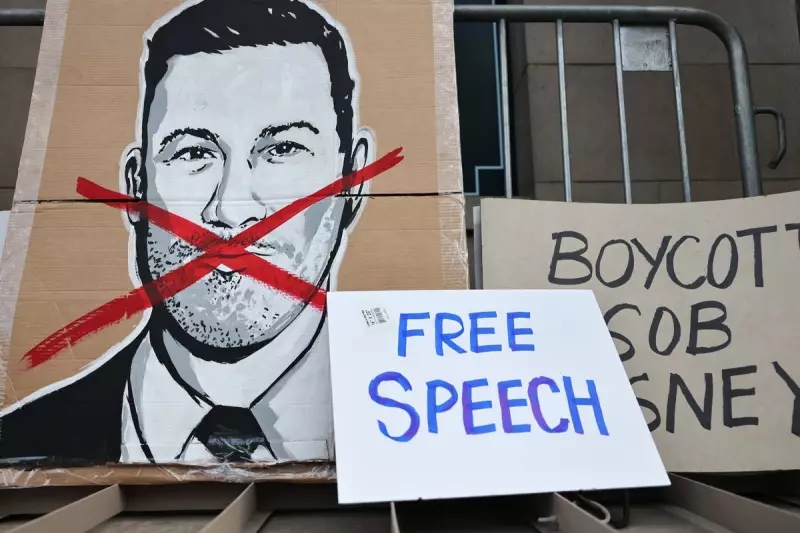
In a blistering response that has set social media alight, ABC's Jimmy Kimmel has fired back at conservative commentator Charlie Kirk after being declared officially 'cancelled' by the Turning Point USA founder.
The late-night host dedicated a significant portion of his Monday night monologue to addressing Kirk's social media proclamation, delivering a characteristically sharp and sardonic rebuttal that left audiences both laughing and contemplating the state of American political discourse.
The Provocation That Sparked the Feud
It began when Kirk took to X (formerly Twitter) to announce that Kimmel's show had been 'cancelled'—a claim that the comedian quickly dismantled with trademark wit. "I saw that this guy Charlie Kirk said I was cancelled," Kimmel told his studio audience. "Which is news to me, and probably news to you too, since you're here."
The audience's roaring applause served as immediate validation of Kimmel's counterpoint, highlighting the peculiar nature of cancellation claims in today's polarized media environment.
A History of Political Sparring
This latest exchange continues a long-running feud between the two media personalities. Kimmel has consistently used his platform to critique conservative figures and policies, while Kirk's organisation, Turning Point USA, has become a powerful force in youth conservative activism.
Their clashes represent broader cultural divisions, with late-night television increasingly becoming a battleground for political ideologies. Kimmel's response underscores how these entertainment platforms have evolved into spaces for political commentary and confrontation.
The Irony of 'Cancellation' Claims
Kimmel expertly highlighted the irony of Kirk's cancellation announcement, noting that the very act of declaring someone cancelled often generates more attention and engagement for the supposed 'cancelled' party. "When you say someone is cancelled on your little podcast that nobody listens to, you're actually promoting them," he quipped.
The comedian also took aim at Kirk's physical appearance, a move that drew both laughter and criticism, demonstrating the often-personal nature of these political-media feuds.
Broader Implications for Media and Free Speech
This confrontation raises questions about what 'cancellation' truly means in contemporary discourse. As Kimmel continues to host one of television's most-watched late-night shows, the declaration of his cancellation appears particularly hollow.
The exchange also touches on ongoing debates about free speech, platforming, and the role of entertainers in political discussion. With viewers increasingly choosing media that aligns with their political preferences, these clashes seem destined to continue.
As the dust settles on this latest skirmish, one thing remains clear: in today's attention economy, declaring someone 'cancelled' might be the surest way to ensure they remain relevant and discussed.






